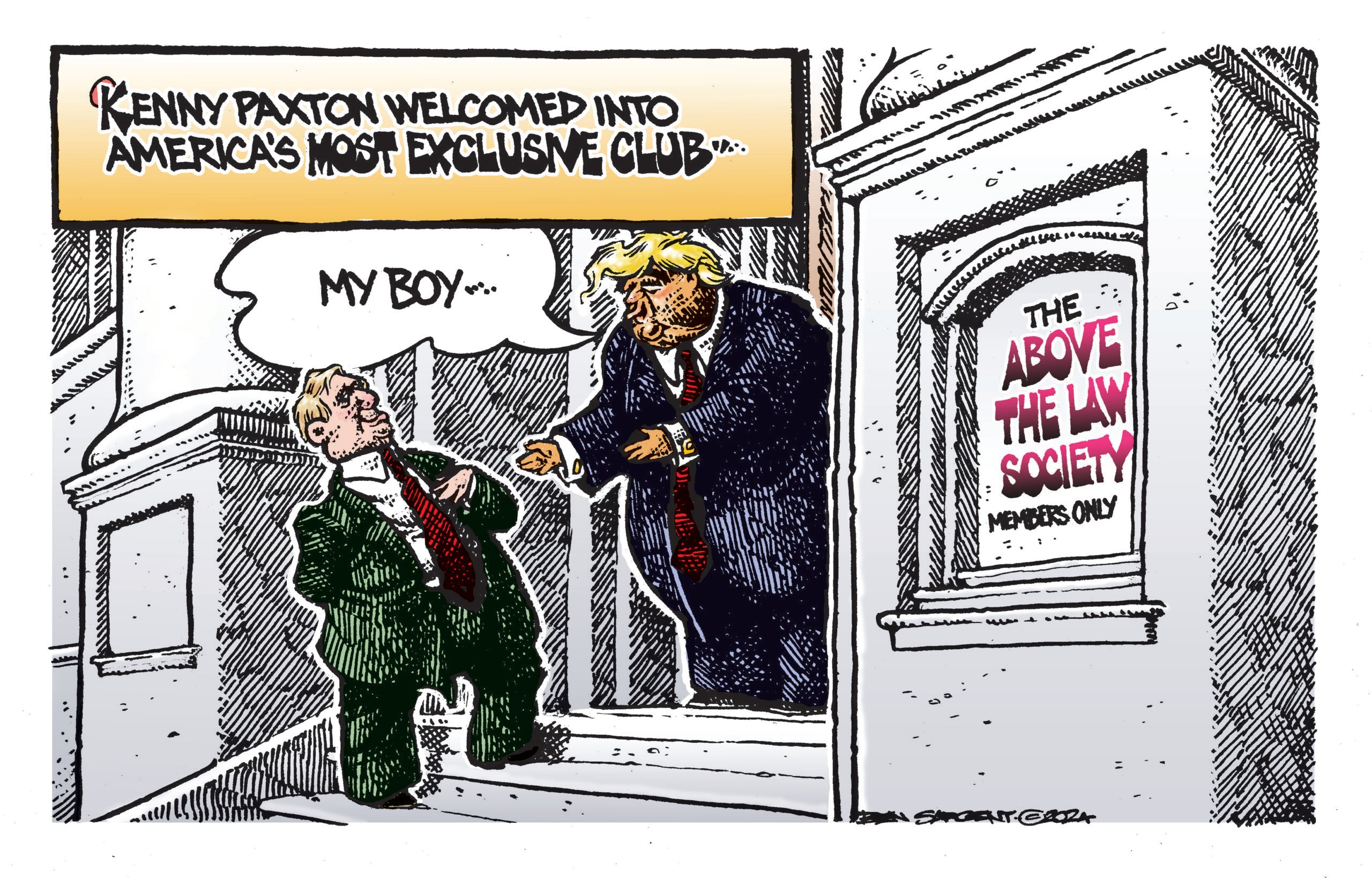ustxtxb_obs_2005_11_18_50_00003-00000_000.pdf
Page 11
EDITORIAL Courting Embarrassment 11111 he people of Texas should thank Tom DeLay and his defense attorney Dick DeGuerin. The recent actions of the two men have once again highlighted the urgent need for reform in the way Texans pick their judges. Newcomers to Texas are often surprised to learn that judges in this state are elected. During campaign season, everyone from your local district judge to the members of the Texas Supreme Court become political candidates: They hire campaign managers, consultants, and fund-raisers, make stump speeches, and solicit hundreds of thousands of dollars in campaign money from lawyers, business interests, and even political partiesall folks who might have cases before their courts. As you can imagine, this leaves the “impartial” arbiters of justice in our state vulnerable to charges of corruption and conflicts of interest. Reliably, every few years, a controversy arises that once again exposes the Texas judicial system to the rest of the nation as a disgrace. In 1987, there was the infamous 60 Minutes story, “Justice for Sale,” that unearthed how trial lawyer money appeared to have improperly influenced Texas’ Democratically controlled judiciary. More recently, the pendulum has swung the other way: Numerous media reports have documented a river of campaign cash from corporate interests and tort reform groups such as Texans for Lawsuit Reform. Their money went toward electing GOPdominated courts that will now rule on cases involving these same corporate interests and the constitutionality of GOP-friendly legislation. Enter DeLay and DeGuerin. DeLay is famous for fulminating against “activist judges”which seems to be anyone who dares rule in a way that’s contrary to the blustery congressman. As Observer readers well know, the former U.S. House majority leader was indicted by a Travis County grand jury on conspiracy and money laundering charges. The case was before Travis County District Judge Bob Perkins, who had already ruled against DeLay’s alleged co-conspirators on another matter. D eGuerin succes sfullyp etitioned to have Perkins removed from the case, ostensibly because Perkins had given several thousand dollars to various Democratic candidates and causes. Not to be outdone, District Attorney Ronnie Earle prodded presiding administrative judge B.B. Schraub, a Republican, to recuse himself from the case, after Earle pointed out that Schraub had supported GOP candidates. The judicial-go-round then moved to state Supreme Court Justice Wallace Jefferson. Jefferson had shared a treasurer and consultant with DeLay’s polit ical action committee and had received $25,000 from the same Republican campaign fund that is at issue in the money laundering charge. Before Earle could get Jefferson recused, Jefferson assigned the case to a Democratic judge based in San Antonio. While the controversy stemmed from judges making contributions, the issue is still the samethe taint of political campaign cash. It’s all too clear that Texas judges can be subject to the pulls of special interests and partisan pandering. It’s time to find a way to insulate the state’s judges from the appearance that they rule for those who foot the bill for their political campaigns. Back in 2004, the outgoing chief justice of the Texas Supreme Court Tom Phillips, a Republican, told the Observer why he believed the system had to change. He described it as “a relic of a much simpler time before there were filing deadlines or organized political parties or campaign ads apart from a handbill or two and a keg of whiskey.” Phillips said, “Because the judges were engaged in a different exercise, of finding and applying the law, rather than making public policy decisions, it seemed to me that judges needed to be at a further remove from the political process than the other branches, and they needed to be at a further remove from their contributors.” We agree. THE TEXAS OBSERVER I VOLUME 97, NO. 22 I A Journal of Free Voices Since 1954 Founding Editor Ronnie Dugger Executive Editor Jake Bernstein Editor Barbara Belejack Associate Editor Dave Mann Publisher Charlotte McCann Associate Publisher Julia Austin Circulation Manager Lara George Art Director/Webmaster Matt Omohundro Poetry Editor Naomi Shihab Nye Copy Editors Roxanne Bogucka, Laurie Baker Staff Writer Forrest Wilder Editorial Interns Kyle Keller, Sofia Resnick, Kelly Sharp, Elizabeth L. Taylor Contributing Writers Nate Blakeslee, Gabriela Bocagrande, Robert Bryce, Michael Erard, James K. Galbraith, Dagoberto Gilb, Steven G. Kellman, Lucius Lomax, James McWilliams, Char Miller, Debbie Nathan, Karen Olsson, John Ross, Andrew Wheat Staff Photographers Alan Pogue, Jana Birchum, Steve Satterwhite Contributing Artists Sam Hurt, Kevin Kreneck, Michael Krone, Gary Oliver, Doug Potter Editorial Advisory Board David Anderson, Chandler Davidson, Dave Denison, Sissy Farenthold, John Kenneth Galbraith, Lawrence Goodwyn, Jim Hightower, Kaye Northcott, Susan Reid Texas Democracy Foundation Board Lou Dubose, Molly lvins, Susan Hays, D’Ann Johnson, Jim Marston, Gilberto caries, Bernard Rapoport, Geoffrey Rips, Sharron Rush, Ronnie Dugger In Memoriam Bob Eckhardt, 1913-2001, Cliff Olofson, 1931-1995 The Texas Observer \(ISSN 0040-4519/ righted 2005, is published biweekly except during January and August when there is a 4 week break between non-profit foundation, 307 West 7th Street, Austin, Texas 78701. Telephone E-mail [email protected] World Wide Web DownHome page www.texasobserver.org . Periodicals Postage paid at Austin, TX and at additional mailing offices. Subscriptions One year $32, two years $59, three years $84. Full-time students $18 per year; add $13 per year for foreign subs. Back issues $3 prepaid. Airmail, foreign, group, and bulk rates on request. Microfilm available from University Microfilms Intl., 300 N. Zeeb Road, Ann Arbor, MI 48106. Indexes The Texas Observer is indexed in Access: The Supplementary Index to Periodicals; Texas Index and, for the years 1954 through 1981, The Texas Observer Index. POSTMASTER Send address changes to: The Texas Observer, 307 West 7th Street, Austin, Texas 78701. Books & the Culture is funded in part by the City of Austin through the Cultural Arts Division and by a grant from the Texas Commission on the Arts. 04:ettyl NOVEMBER 18, 2005 THE TEXAS OBSERVER 3


